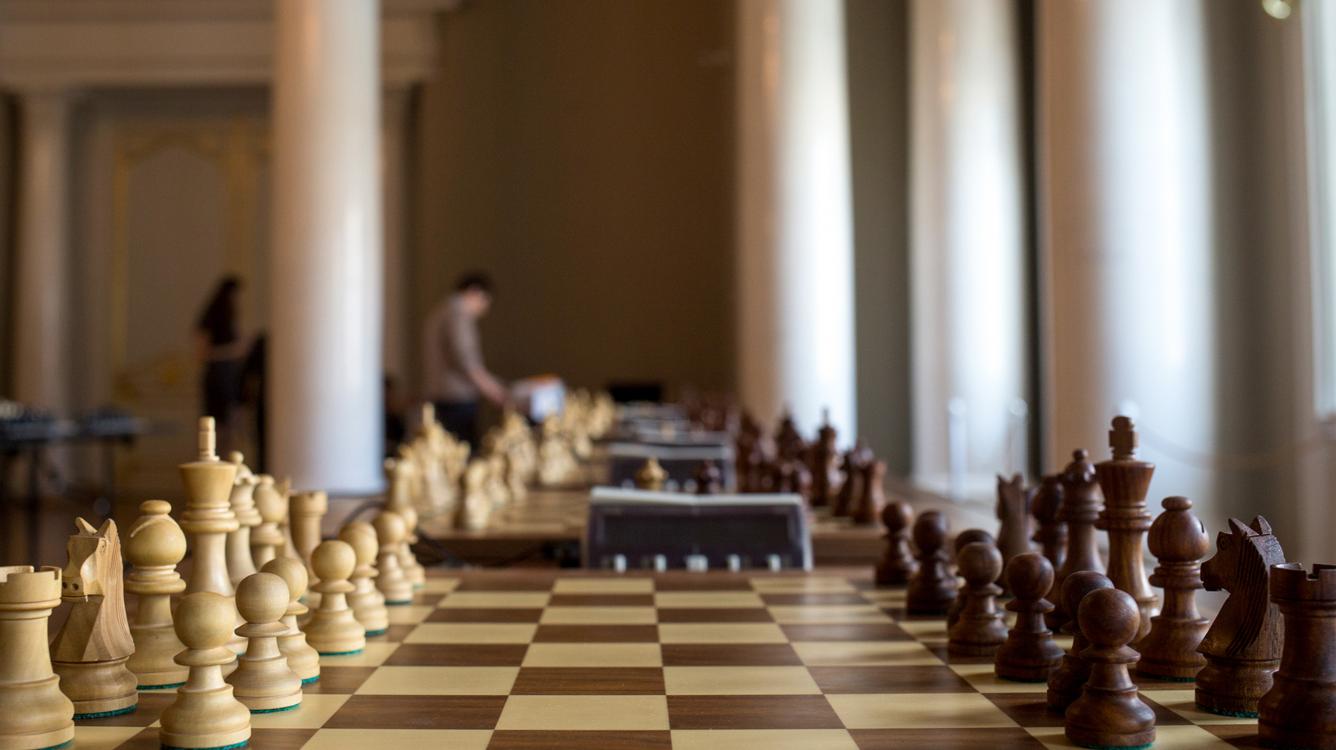
What I Learned From My 1st Chess Tournament
I prepared for my first chess tournament for weeks.
Every night, I played a rapid game -- and then studied it, reviewing my moves to see where I missed a tactic, where I anticipated the wrong move, where I could have pressed for better advantage. I dedicated a little time every afternoon to lessons and endgame drills. I did tactics in every spare moment. I learned to checkmate with a bishop and knight. You never know!
By the time the tournament approached, I felt ready. My rapid rating on Chess.com was nearing 1400 -- a poor estimator, I know, but I took it as something I could build from. Two nights before the tournament, I took an online quiz, the Elometer, developed by researchers at the University of Dusseldorf. The Elometer provides an estimate of a player’s rating based on her answers to 76 chess problems, which are then compared to the playing strength of previous participants. Some of the questions were very easy, and some complex; some were tactical and some were positional; some seemed just impossible. But most of them looked a lot like the drills I had been spending so much time doing in the past few weeks. It was fun. The estimate of my Elo rating came back as 1876, with a 95 percent confidence interval of 1750 to 2003.
Not bad, I thought to myself. Not bad at all.

Still, the next morning I was nervous. Very nervous. My stomach had migrated to my throat. This had something to do with the fact that I had carefully avoided competition for more than a decade, having finally internalized the message, which I had been receiving explicitly and implicitly since I was a little girl, that I was too competitive. It also had something to do with the fact that the waiting room at the Boylston Chess Club in Cambridge, Massachusetts, was filled with children.
Chess is strategy; of course it is war, but it is also a children’s game. The history of chess is the history of prodigies, of tiny winners with dangling feet, of adolescent grandmasters. I knew this, everybody knows this; still, it was something else to walk into a room, expecting something as quiet and serious as a chess tournament, and to find yourself at recess. The tables were covered in bags of chips, giant containers of animal crackers. Kids clustered over a couple of chessboards, debating tactics -- a few of them in Russian or Chinese. There were several adults, but I quickly realized that all but a few of them were parents, not participants.
They were also, incidentally, almost all boys. There was one young girl -- in fact, one of the highest-rated players there -- but that was it. Just before the tournament began, a middle-aged woman approached me. She wore a scarf with little chess pieces in the print; her purse was lined like a chessboard. She knew my name. She wasn’t playing herself, she said, but she wanted to tell me how happy she was I was there. “It’s so nice to see a woman here,” she added.
We moved into the large, light-filled room where the tournament would be taking place. The boards were already set up. Across from me sat a small child, maybe nine or 10, with large eyes and sandy hair. He had to sit on his feet to reach across the chessboard.
I played Black -- a Sicilian. Almost immediately, I had problems. He quickly grabbed the center. I would forget to switch the time; he would stare pointedly at me, and finally flicker his eyes toward the clock.

Suddenly, for no good reason, I lost a pawn. I was so worried about my own position -- my useless light-squared bishop, my lack of coordination, the gathering sweat -- that I didn’t notice his bald attack. Suddenly, there was a white queen on g4. Then, with my knight moved from f6, he brazenly sacked his bishop on h7. Grasping for anything, I used my queenside fianchettoed bishop to nab a pawn on g2--only to see the obvious, that his rook was sliding right over my bishop; that his queen was crowding my king, that I was totally screwed. I knocked my king over; he solemnly held out his hand. I asked him what his rating was. “533,” he said.
I thought I had misheard him.
That little kid won every match he played that day. I tried to tell myself that he was at that stage that some kids go through, the stage where they improve at something every time they eat breakfast. My next opponent was another child, like me also playing his first tournament -- and you could tell. He fidgeted, got up after every move, shrugged when I queened a pawn, with a forced checkmate coming. But I could hardly register the win; I was already shaken.
In my third match of the day, I played a middle-aged man rated around 1200. He carried his own cushion into the room and carefully placed it on the wooden chair before settling there himself. I stared at him for a moment. He was bald, thin, with kind eyes. There was only one person I had ever played over the board. I was accustomed to seeing a screen in front of me, not faces.

A messy Catalan. I gave up a pawn, again for no reason -- but as we got into the endgame, I had good drawing chances. But I had no confidence in them. I’d already lost. There was something almost masochistic about the way I played the fatal a5. He looked up, sharply, his narrow features curving into a question mark. I resigned a few moves later.
My rating was posted a few weeks later: 492. I tried setting Shredder, the computer engine I used, to 500, to remind myself how easily I could beat it. But Shredder only went down to 800.
Chess, for me, has always been an exercise in daily humility. That’s part of its appeal. But now I felt exposed. I wanted to stop playing chess altogether. I was too old, too slow, too humiliated. I was wasting my time. What was the point? It wasn’t even the rating that bothered me; there are plenty of chess players who begin around there. But I took the divergence in my expectation and result as a kind of result in a referendum on my game -- and my true self.
A month later, I was back. Compelled, somehow, to keep going. Across the table, another child -- a Chinese-speaker, rated 1560. “How long have you been playing chess?” he asked me before we started. I told him a little over a year, that it was my second tournament. He nodded thoughtfully. “I am rated much higher than you,” he said gently, “but I was once 500 too.”
I played Black: a Slav, though, with my typical confusion about openings, I’d thought I played the French. I had the usual problems: a trapped light-squared bishop, a pawn hung for no reason. But I managed to hold myself together, and when I came into the pawn ending, I certainly wasn’t winning, but I wasn’t quite losing, either. The time ticked down, the tension was high. From time to time, a few Chinese children would appear at my shoulder, peering at the board.
In the end, I couldn’t hold it, lost a blockading pawn, and resigned. “You played very well,” the kid -- his name was Andrew Su -- solemnly told me. “But you had winning chances. He set up the board to the position where I had blundered. “Here, a5,” he said, moving my pawn. “Everything else loses.” And patiently, he played it out for me. With tremendous will, I resisted hugging him.
I kept all my scoresheets, planning to plug in the PGN and review them. I imagined keeping a database of all my tournament games, a splendid record of my improvement. But when i tried to plug in the PGN, I realized that I had put queens where they couldn’t be, had checks where none existed. I wouldn’t differentiate which rook I’d moved. At one point, instead of Qxc3, I wrote Qx33. I moved a king from d7 to h6 -- in one move.
I won that game, my second victory. How? I’m staring at my scoresheet. I have no idea.
 Louisa Thomas is an American writer, author of two books (including Louisa: The Extraordinary Life of Mrs. Adams), a regular contributor to NewYorker.com, former writer and editor at Grantland.com, and "obsessed" with tennis and chess. You can follow her on Twitter.
Louisa Thomas is an American writer, author of two books (including Louisa: The Extraordinary Life of Mrs. Adams), a regular contributor to NewYorker.com, former writer and editor at Grantland.com, and "obsessed" with tennis and chess. You can follow her on Twitter.






